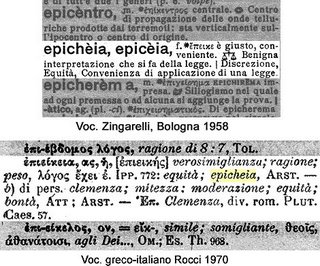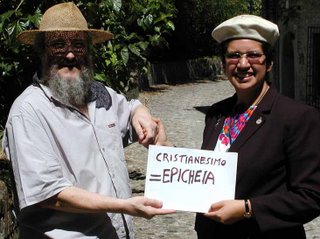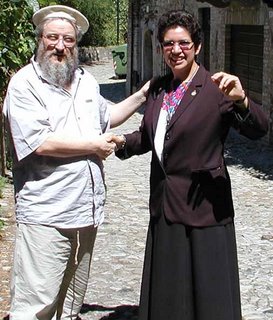 What has changed since the Roman Empire on the legality of the levy of taxes?
What has changed since the Roman Empire on the legality of the levy of taxes? For the disciples of legalism would really be a problem tragic (or comic, given the absolute stupidity) if the end of the world to happen on Saturday, ironically assumed the evangelist Matthew (Mt 24.20): if 's observance of the Sabbath rest of these mentally ill they had to face the flight on Saturday as you put it?
 With these words, Matthew seems to indicate that his conversion from the previous profession of tax collector Primate yearns to identify the insanity in humans, and then to heal. Speaking of missionaries appropriate implementation of its social program (Mt. 3.1 to 7.29), in fact, Matthew says that the missionary of the new social need (new kingdom, the kingdom of God) must first be informed about the concept of health and sickness (Matthew 8.1 to 11.1): healthy are those who offer the gift Moses as tax conscious, that is like money in the donation, which testifies to the individual capacity of convivial sociality: "[. ..] offer the gift that Moses, which serves as a testimony to them " (Matt. 8:4); ill are the lepers, ie those who are not touched by hand (Mt 8:3) of those who can overturn the tables of moneychangers (Matt. 21.12) and collectors who sit on the benches of taxes, ie tax collectors, as diagnosed by Jesus sick people who need a doctor: "[...] "Why does your teacher eat with tax collectors and sinners?". When he heard this and said: "I'm not the healthy who need a doctor, but the sick " (Mt. 9.11 to 12). The disease is a disease of jurists as old as the world, and today is still being seen through decrees and laws, as if it was good thing for men to love one another decree. This was never pleasing to the god of Eloìm!
With these words, Matthew seems to indicate that his conversion from the previous profession of tax collector Primate yearns to identify the insanity in humans, and then to heal. Speaking of missionaries appropriate implementation of its social program (Mt. 3.1 to 7.29), in fact, Matthew says that the missionary of the new social need (new kingdom, the kingdom of God) must first be informed about the concept of health and sickness (Matthew 8.1 to 11.1): healthy are those who offer the gift Moses as tax conscious, that is like money in the donation, which testifies to the individual capacity of convivial sociality: "[. ..] offer the gift that Moses, which serves as a testimony to them " (Matt. 8:4); ill are the lepers, ie those who are not touched by hand (Mt 8:3) of those who can overturn the tables of moneychangers (Matt. 21.12) and collectors who sit on the benches of taxes, ie tax collectors, as diagnosed by Jesus sick people who need a doctor: "[...] "Why does your teacher eat with tax collectors and sinners?". When he heard this and said: "I'm not the healthy who need a doctor, but the sick " (Mt. 9.11 to 12). The disease is a disease of jurists as old as the world, and today is still being seen through decrees and laws, as if it was good thing for men to love one another decree. This was never pleasing to the god of Eloìm! Why I want mercy, not sacrifice, knowledge of
Eloìm than burnt offerings (Hosea 6:6)
ancient times, for the sake of purity, they avoided any contact with these patients, ie the tax and any other sinner under the law.
But Jesus sits at table with tax collectors (Matt. 9:10) because these disciples of legalism are sick to be treated.
The cure is to explain to them the transition from the old system of collection, which today would be called income (which is unfortunately still the one currently in force) to the new system of donation collection. That means
levy income or income tax?
means withdrawal from the sweat of their brow, that the sacrifices while I work to give my best in the world, and especially my parents, for whom I sacrifice myself, you, publish, requires me to draw a part of the result of my sweat in the name of social conviviality. The tax seems right. However, if one considers it a bit 'more closely, one realizes that it is based on a technical error: the error lies in the fact that all the' system 'is influenced by the tax return, meaning that if I declare the right, the economy works, otherwise not. Where's the problem?
The question is whether it is right to declare the right, facing the fact that, for example, in Italy the collection of taxes is not working at least 21 centuries. And this is a historical fact: just read the famous Verrine, that the speeches of Cicero against Verres about serious incidents of corruption around the collection of taxes (1).
know who declares the right to know and why it is right to declare the right to Matthew are therefore two types of knowledge that can not let him continue his profession as a tax agent.
He decides to follow Jesus means to follow Jesus
epicheia second act.
act according epicheia means I pay the tax if he considers it fair, I do not pay tax on the use of which is intended to feel unjust purposes and immoral, such as wars for example. And until proven otherwise, the health of every State is called war.
Wars are doing it because the tax on the sacrifice (the current income tax) is only generated famine and debt: "The finances have to be rebalanced" - said Cicero in 63 BC - "Public debt should be reduced. The arrogance of the bureaucrats must be mitigated and reduced assistance to foreign lands, or Rome will be ruined " !
Here, then, because the technical mistake in the tax on the sacrifice to be solved. Why is pre Christian times which must be resolved, and it is not.
Faced with this problem, the world still behaves as if the concept of roundness was never born, and in the conscience as if it is even in flat form, or cube, etc..
 absolutely must have solved this problem, if you want to talk about being a Christian (even if only in the sense of being human).
absolutely must have solved this problem, if you want to talk about being a Christian (even if only in the sense of being human).
is why Jesus, to explain the difference between sacrifice and mercy, he spoke the words of the prophet Hosea: "I desire mercy and not sacrifice (Hosea 6:6), quoted by Matthew (Mt 9:13).
And that's why the conversion and calling of Matthew are characterized by knowledge of this difference between mercy and sacrifice. The tax collector Matthew realizes that the contents of these two concepts are contradictory, since those who are able to be merciful have no need to pay attention to the sacrifices required by law , and since those who practice mercy, mercy can not hear this as a duty, but as a right to happiness and life. About
now studying business in a merely intellectual has a certain difficulty to perceive economics as a science of brotherhood (or solidarity) precisely insofar as it is unaccustomed, and therefore unable to distinguish between mercy and sacrifice. Understanding economy, demands a concrete logic, integral, not merely intellectual, but also imagination, inspiration, and intuitive. C on the mere intellectual logic you can prove everything and its opposite, and for this reason, mercy, sacrifice, good and evil, malignant and benign, are the relative values \u200b\u200bof the university economist ( In fact, today the economy has become the only sport in which two people can share a Nobel Prize, saying opposite things: see http://web.tiscalinet.it/nonsoloeconomia/barzellette.htm ). And as in the words the prophet Hosea, "Because I like it mercy and not sacrifice " (Hosea 6:6) there are the words "dated money" or "money tax " he can not find any base to support a tax in place of a benign tax malignant. Of course there are exceptions, such studies Nicolò Giuseppe Bellia taxation purposes, which in terms of prophetic above, are preliminary to the modern distinction between mercy and sacrifice that ancient man, in this case, Hosea, called "sacrifice" contrasting it to the kindness or mercy, modern man, in this case Bellia, called "income tax", that is, withdrawal from individual income, the result of sweat and sacrifice, but what Bella calls "tax money", ie taking by capital consists of the monetary values \u200b\u200bof the entire planet (starting with the family and to all peoples and societies, consisting of whole populations) for the Hosea was tzedakà, or the "tenth", the royal mercy. In this sense, both the old tzedakà as the future "tenth" of neofiscalità (money tax ordinary) proposed by Bellia, are not only fair but they are sacred and holy (2).
Hosea says: I want to love and not sacrifice (Hosea 6:6). And this is the right and the trial (3), that the prophets have always been called to establish. It is clear that the verse here studied digs a chasm between two ways of achieving a better world: on one hand the sacrifices required by law, on the other's love and mercy. It means: one is the technique of religion, or the tax technical, the other is the personal dedication. Perhaps the contrast is a bit 'simple, but it should be in that line (4).
So for those who choose as a profession to control the taxes, observe them as withdrawal from the sacrifice, and observe as removal from mercy, is observed clinically as illness or mental health.
How money is essential for healthy tax, so the heart is essential for mercy, because mercy is the feeling of charity for which the misery of others touches our hearts. With this belief the money then becomes an instrument of mercy.
For the representation of that feeling, we need to imagine the misery of others, should think about it. Thinking about it does not mean thinking by decree, as is usually the wise and right-minded disciple of legalism, which is only able to represent new tools tax, new taxes and new levies: for him the new is to devise new instruments of sacrifice of the people!
As a means of sacrifice, the currency is in fact poverty and slavery, because the man is forced to appropriate it, feel it as something to make their own, private, and should be heard as a public good, that is, as a good belonging to all, something that already belongs to man, and that no one can monopolize alien as a commodity. See the swallows: public flying in the sky, each feels like his. The sky is all like the sea, fish, wine, and every fruit on the planet, is like the bread that is broken for everyone, distributed as a wealth of everybody.
is why the real sense of the taxes is the resolution Poverty, not the production of poverty, as is done today. And that's why poverty will disappear with the mercy and not sacrifice.
Taxes are not a duty. I am a natural right. The tax collector that you remember, immediately realizes that even his work as a collector only makes sense if that right is respected. If there is no respect, one can not impose income taxes or tax returns. Everyone has the right to declare what it wants, if you like. Nobody should be forced to declare something. I talk to if I think it beneficial for me or for you, if I love you. But if I love you and I see you in misery I can not force you to tell me what works (if it works!) Or how much your income and import taxes on it for your own good! Why is this alienation. So Matthew follows Jesus
, which is objector tax excellence. But it takes courage. And the courage of fear is not courage.
Courage of Fear is the foundation of militarism. The courage to have compassion for the poor is that instead of mercy.
The courage of fear, as contradiction, assume the part of consciousness Obtenebration stolid and exaltation of those who go quietly and / or legally kill.
The tax collector is scary because it comes into your house with a mandate to check your statement of income and to penalize if you find that, to exist, you have to declare less than they earn. Yesterday on the grounds that the bread was cheaper for him than it is today does not count. For he has the law, because he is as obedient to the military legal download bombs on the cities, or that fires in people's faces and get medals for this, his face stiffened by heroic gravity. And who shall affix the medal on the lapel of 'the people love the example of his "heroic" deeds.
It is with this kind of love that evaders "like" tax collectors. The evader fantozzi "loves" the courage of fear, the robbery of taxation and / or sanction as well as the head of state shows the courage to love extermination.
They love everyone.
But Matt, if you want to follow Jesus, he must explain himself first, and then to others why this is so easy to love for all by coming to terms with the right to epicheia. Indeed "if you love those who love you, what reward will you get? Do not even the tax collectors?" (Matt. 5:46). This "merit" is in fact one of the publicans, that is, the tax collectors.
And Matthew, the first of his vocation, was one of them. The publicans
tithes on behalf of the Roman occupation, defrauding the people. Just like today. Because the authority of the Roman occupation is now the rule, disguised as a people (the better to rob people), and managed from a central control, which is far from people, even if it is elected by a majority of tonnage popular meat. Who's in charge is always the one who commands (though Lenin considered the "dictatorship of the proletariat" bleeding dictatorship of the dictator of the moment!). In dictatorship, just as in the income tax, "is like all" filled with all the courage of fear! All
fact "bitter" Il Duce, Hitler, Saddam, just as we all love the tax agent and inspect our home or our shop or our work, that our sacrifice ... And we offer you the coffee!
2000 years have passed from the translation of Matthew, tax collector, but nobody talks about, let alone the Religion ruling.
This means that these 2000 years are like two days, and that the implementation of the M suitable for immediate social good of the people ("Program of the Kingdom," written in 153 verses: Mt from 3.1 Mt 7.29), still needs a lot of patience ...
NOTES
(1) See http://enzorusso2020.blog.tiscali.it/yj2458859/
(2) Even if the web I gladly criticized the methods and attitudes Bella on the disclosure of which neofiscalità advocates I can not not share his ideas, especially those concerning the ordinary money tax, in accordance with what is absolutely, in my view, the content of the concept of mercy in this verse of Hosea examined here.
(4) See the meditations of monks Bose (Magnano - Belluno) on Hosea page http://www.cistercensi.info/monari/2001/mp120601.htm : " Obviously they are not banned or burnt sacrifices, but if they are perceived, conceived and experienced as tools to manipulate God's freedom, and thus to make God a tool for their own prosperity, we are obviously in front of a strain of religion, so this is not the order of justice. The 'order of justice "does not mean that God becomes the servant of man, but that man becomes the servant of God that God does not become a tool so that man can do his projects, but that' Man becomes God's instrument in the fulfillment of his - of God - the project, and this is precisely through the 'love' and 'knowledge of God. " I believe that the speech can be found in Hosea chap. 8, 11-13, says: "11 Ephraim has multiplied altars, altars, but have become for him an occasion of sin." It is paradoxical, "the religious acts have become an occasion of sin for Ephraim." Obviously: the religious acts, because the image of God has been distorted into a magical perspective, in which with certain gestures can control the superhuman powers. If religion is understood as clearly is deforming. "12 I have written many more for him, but they are treated as something foreign. 13 They offer sacrifices and eat meat, but the Lord does not like you, will remember their iniquity and punish their sins: they must return in Egypt. " Again, this discourse can find in Psalm 50 degrees, is very significant, and we have already mentioned in the first meditation because of the summons in court with which the Psalm begins. He says: "7 Hear, O my people, I talk, will testify against you, Israel." It says in the Psalm that God does not accuse Israel of being very religious sacrifices are plentiful, there are too many, so this is not the reason why the Lord has suffered against Israel. The reason is another, says: "14 Offer to God a sacrifice of praise to the Almighty and melt your votes, 15 Call on me in times of trouble: I will save you and you will give me glory." The Lord promises his intervention, but it is when man is able to position themselves before God in a relationship of dialogue, "I - you" in a relationship of communication, friendship, trust and freedom, where man is involved in his freedom, but God leaves his freedom. Only at this point the Lord provides his answer as a response to salvation. Please understand that this speech: "6 I love and not sacrifice, knowledge of God rather than burnt offerings", expresses a global view of religious life, so it's not just a way of thinking about the sacrifice, but it is a way of thinking man's life of faith. You can find in the Gospel the appeal to this text, that is loved by Matthew. You can find it at ch. 9, 13, which speaks of the reception of sinners, and the way in which Jesus welcomes them is explained by this verse: "God wants love and not sacrifice." Even at ch. 12, 7, where he explains and defends the attitude of the disciples who ate the grain of corn on the Sabbath, and then defended an attitude that comes from poverty and weakness to the interpretation of the law of the Sabbath [...] slowly rises in the history of the world before God, that is justice, "the order of God's justice." What is this order, we said: "Love and not sacrifice "," knowledge of God rather than holocausts. " Where love and knowledge of God clearly interwoven to express the attitude of trust, recognition of God, of submission and obedience to the Lord concrete. "








